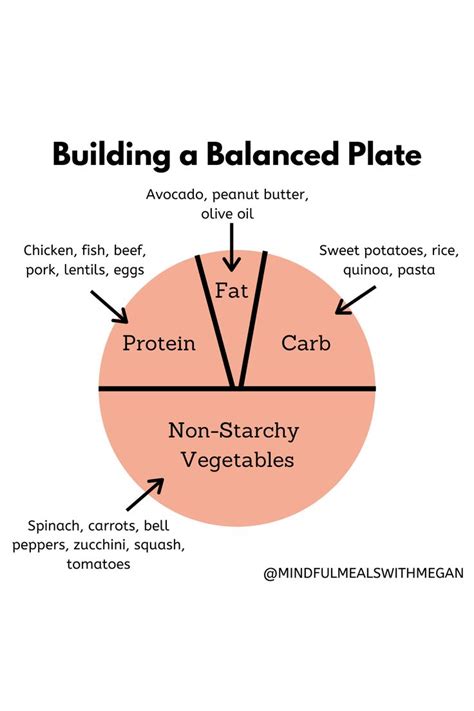How to optimize diet for sustained energy and peak mental focus?

The Foundation of Sustained Energy and Sharp Focus
In today’s fast-paced world, maintaining high energy levels and sharp mental focus is crucial for productivity and well-being. While many factors contribute to these states, diet plays an undeniably central role. What you eat directly impacts your brain function, mood, and physical stamina. This guide will explore how to craft a dietary approach that fuels your body and mind for sustained performance.

The Role of Macronutrients: Fueling Your Body Right
Complex Carbohydrates: The Steady Energy Source
Forget the myth that all carbs are bad. Complex carbohydrates are your body’s preferred and most efficient source of sustained energy. Unlike simple sugars that lead to energy spikes and crashes, complex carbs (found in whole grains, legumes, and vegetables) release glucose slowly into your bloodstream, providing a steady supply of fuel for both your muscles and brain.
- Choose: Whole oats, quinoa, brown rice, sweet potatoes, lentils, beans.
- Avoid/Limit: White bread, sugary cereals, pastries, processed snacks.
Lean Proteins: Building Blocks and Satiety
Protein is essential for repairing tissues, building enzymes and hormones, and contributing to neurotransmitter production, which is vital for mental clarity. It also helps stabilize blood sugar and keeps you feeling full and satisfied, preventing those distracting hunger pangs.
- Choose: Chicken breast, turkey, fish (salmon, tuna), eggs, Greek yogurt, tofu, tempeh, lean beef.

Healthy Fats: Brain Powerhouse
Don’t fear fats! Healthy fats, particularly omega-3 fatty acids, are critical for brain health and cognitive function. They support cell membrane integrity, reduce inflammation, and can improve memory and mood.
- Choose: Avocados, nuts (almonds, walnuts), seeds (chia, flax), olive oil, fatty fish (salmon, mackerel).
- Avoid/Limit: Trans fats, excessive saturated fats found in processed foods and deep-fried items.
Micronutrients and Hydration: The Unsung Heroes
Vitamins and Minerals: Essential Co-Factors
A diet rich in diverse fruits and vegetables ensures an adequate intake of vitamins and minerals. B vitamins are crucial for energy metabolism, magnesium plays a role in nerve function, and antioxidants protect brain cells from damage.
- Focus on: Leafy greens, berries, citrus fruits, cruciferous vegetables.

Hydration: The Brain’s Best Friend
Even mild dehydration can lead to fatigue, reduced concentration, and headaches. Water is essential for transporting nutrients, removing waste products, and maintaining optimal brain function. Make water your primary beverage.
- Goal: Drink at least 8 glasses of water daily, more if you’re active or in a hot climate.
Strategic Eating: Timing and Mindfulness
Regular Meal Timing
Eating balanced meals and snacks at regular intervals (every 3-4 hours) helps maintain stable blood sugar levels, preventing energy dips and ensuring a continuous supply of fuel for your brain. Skipping meals can lead to overeating and poor food choices later.

Mindful Eating
Pay attention to your hunger and fullness cues. Eat slowly, savor your food, and minimize distractions during meal times. This not only aids digestion but also helps you recognize when you’ve had enough, preventing overconsumption which can lead to sluggishness.
Foods to Limit or Avoid
To optimize energy and focus, it’s wise to reduce or eliminate foods that work against your goals:
- Sugary Drinks and Snacks: Provide quick energy spikes followed by inevitable crashes.
- Highly Processed Foods: Often low in nutrients, high in unhealthy fats, sugar, and sodium, contributing to inflammation and fatigue.
- Excessive Caffeine: While a moderate amount can boost focus, too much can lead to jitters, anxiety, and disrupted sleep, ultimately undermining sustained energy.
- Alcohol: Can impair sleep quality, dehydrate, and negatively affect cognitive function.

Conclusion: A Holistic Approach
Optimizing your diet for sustained energy and peak mental focus isn’t about restrictive eating; it’s about making smart, informed choices consistently. Prioritize whole, unprocessed foods rich in complex carbohydrates, lean proteins, healthy fats, and a rainbow of fruits and vegetables. Stay hydrated, eat mindfully, and observe how your body and mind respond. By nourishing yourself wisely, you empower yourself to achieve sustained vitality and sharpen your cognitive edge every single day.








